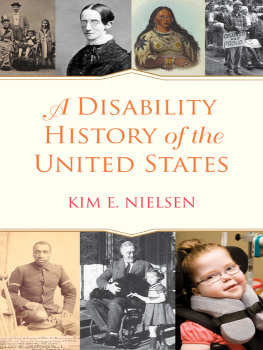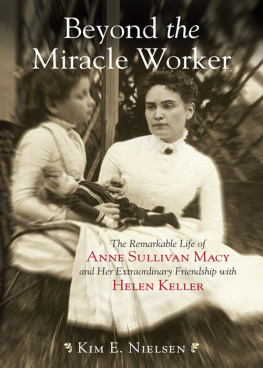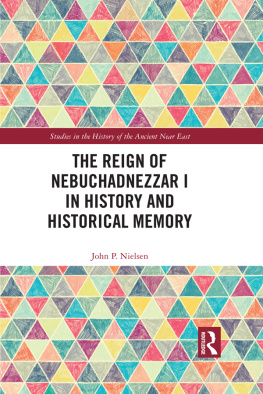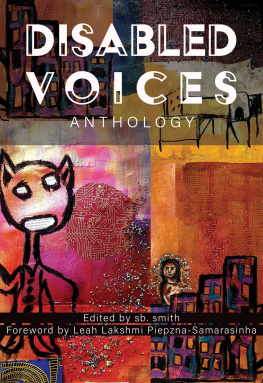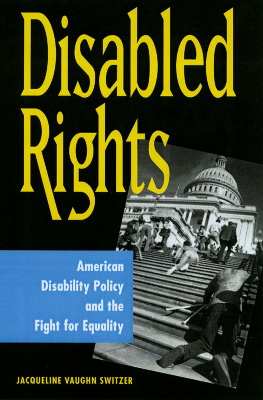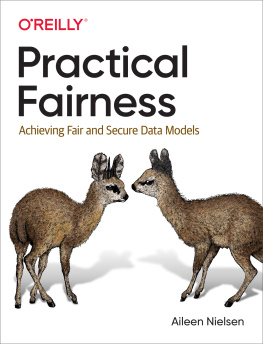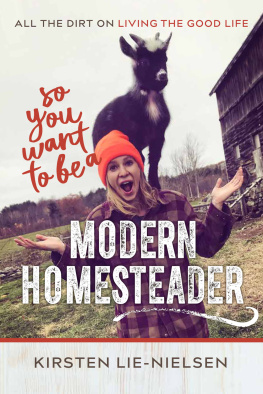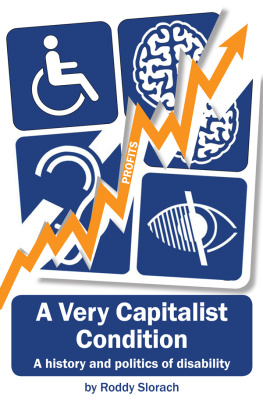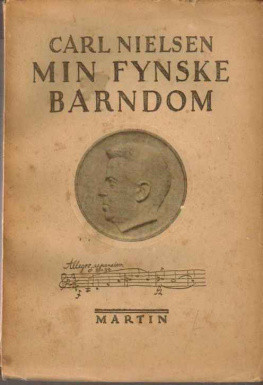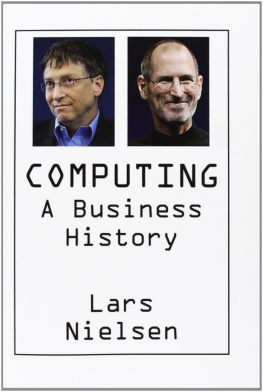Kim E. Nielsen - A Disability History of the United States
Here you can read online Kim E. Nielsen - A Disability History of the United States full text of the book (entire story) in english for free. Download pdf and epub, get meaning, cover and reviews about this ebook. year: 2012, publisher: Beacon Press, genre: History / Science. Description of the work, (preface) as well as reviews are available. Best literature library LitArk.com created for fans of good reading and offers a wide selection of genres:
Romance novel
Science fiction
Adventure
Detective
Science
History
Home and family
Prose
Art
Politics
Computer
Non-fiction
Religion
Business
Children
Humor
Choose a favorite category and find really read worthwhile books. Enjoy immersion in the world of imagination, feel the emotions of the characters or learn something new for yourself, make an fascinating discovery.
- Book:A Disability History of the United States
- Author:
- Publisher:Beacon Press
- Genre:
- Year:2012
- Rating:5 / 5
- Favourites:Add to favourites
- Your mark:
- 100
- 1
- 2
- 3
- 4
- 5
A Disability History of the United States: summary, description and annotation
We offer to read an annotation, description, summary or preface (depends on what the author of the book "A Disability History of the United States" wrote himself). If you haven't found the necessary information about the book — write in the comments, we will try to find it.
Kim E. Nielsen: author's other books
Who wrote A Disability History of the United States? Find out the surname, the name of the author of the book and a list of all author's works by series.
A Disability History of the United States — read online for free the complete book (whole text) full work
Below is the text of the book, divided by pages. System saving the place of the last page read, allows you to conveniently read the book "A Disability History of the United States" online for free, without having to search again every time where you left off. Put a bookmark, and you can go to the page where you finished reading at any time.
Font size:
Interval:
Bookmark:

OTHER BOOKS BY KIM E. NIELSEN
Beyond the Miracle Worker: The Remarkable Life of Anne Sullivan Macy and Her Extraordinary Friendship with Helen Keller
The Radical Lives of Helen Keller
Helen Keller: Selected Writings
Un-American Womanhood: Antiradicalism, Antifeminism, and the First Red Scare
OTHER BOOKS IN THE REVISIONING AMERICAN HISTORY SERIES
A Queer History of the United States by Michael Bronski

TO NATHAN,
in celebration of twenty-five marvelous, joyful, sometimes bittersweet, event-filled, unforeseen years. And to Morgan and Maya: two of the stunning events.
DISABLED COUNTRY
If there was a country called disabled,
I would be from there.
I live disabled culture, eat disabled food,
make disabled love, cry disabled tears,
climb disabled mountains and tell disabled stories.
If there was a country called disabled,
I would say she has immigrants that come to her
From as far back as time remembers.
If there was a country called disabled,
Then I am one of its citizens.
I came there at age 8. I tried to leave.
Was encouraged by doctors to leave.
I tried to surgically remove myself from disabled country
but found myself, in the end, staying and living there.
If there was a country called disabled,
I would always have to remind myself that I came from there.
I often want to forget.
I would have to remember... to remember.
In my lifes journey
I am making myself
At home in my country.
NEIL MARCUS

ONE
The spirit chooses the body it will occupy:
Indigenous North America, Pre-1492
TWO
The poor, vicious, and infirm:
Colonial Communities, 14921700
THREE
The miserable wretches were then thrown into the sea:
The Late Colonial Era, 17001776
FOUR
The deviant and the dependent:
Creating Citizens, 17761865
FIVE
I am disabled, and must go at something else besides hard labor:
The Institutionalization of Disability, 18651890
SIX
Three generations of imbeciles are enough:
The Progressive Era, 18901927
SEVEN
We dont want tin cups:
Laying the Groundwork, 19271968
EIGHT
I guess Im an activist. I think its just caring:
Rights and Rights Denied, 1968

When I crossed the stage to receive my PhD in history in 1996, I had no plans to become a historian of disability. I love history: the captivating stories and the satisfying intellectual bite of a vigorous analysis. At the time, if asked, and if Id been honest, Id have considered the topic of disability too softall that pity and empathytoo boring, and too far removed from the real hard stories of history. Was I wrong!
Ive learned that disability pushes us to examine ourselves and the difficult questions about the American past. Which peoples and which bodies have been considered fit and appropriate for public life and active citizenship? How have people with disabilities forged their own lives, their own communities, and shaped the United States? How has disability affected law, policy, economics, play, national identity, and daily life? The answers to these questions reveal a tremendous amount about us as a nation.
A Disability History of the United States places the experiences of people with disabilities at the center of the American story. In many ways, this is a familiar telling. In other ways, however, it is a radical repositioning of US history. As such, it casts new light on familiar stories (such as slavery and immigration), while also telling new stories (such as the ties between nativism and oralism in the late nineteenth century). It also makes clear that there has been no singular disability experience. Although people with disabilities share social stigmatization, and sometimes are brought together by common experiences and common goals, their lives and interests have varied widely according to race, class, sexuality, gender, age, ideology, region, and type of disabilityphysical, cognitive, sensory, and/or psychological.
While telling the history of people with disabilities, A Disability History of the United States will also tell the history of the concept of disability. These are two very different tasks. Throughout US history, disability has been used symbolically and metaphorically in venues as diverse as popular culture (freak shows, for example) and language (Thats so lame; What a retard; special). When disability is considered to be synonymous with deficiency and dependency, it contrasts sharply with American ideals of independence and autonomy. Thus, disability has served as an effective weapon in contests over power and ideology. For example, at varying times, African Americans, immigrants, gays and lesbians, poor people, and women have been defined categorically as defective citizens incapable of full civic participation.
The story of US history is often told as a story of independence, rugged individualism, autonomy, and self-made men (and occasionally women) who, through hard work and determination, move from rags to riches. Just as the colonists sought and gained independence from Great Britain in order to create a successful and powerful country, so must individual citizens seek and gain independence in order to create successful and powerful selves. The idealized notion holds that we are a nation of Horatio Algers, perpetual train engines chugging our way (I think I can, I think I can) up to the city on the hill, insisting that we can do it ourselves. And, of course, the US democracy is founded on the premise that citizens are capable. It is the responsibility and privilege of citizens to vote, contribute economically, and have a say in their government. As citizens, as good citizens, we are to stand on our own two feet and speak up for ourselves (ableist phrases, if ever there were). In this version of the national story, independence is good and dependency is bad. Dependency means inequality, weakness, and reliance on others.
When disability is equated with dependency, disability is stigmatized. Citizens with disabilities are labeled inferior citizens. When disability is understood as dependency, disability is posited in direct contrast to American ideals of independence and autonomy.
In real life, however, just as in a real democracy, all of us are dependent on others. All of us contribute to and benefit from the care of othersas taxpayers, as recipients of public education, as the children of parents, as those who use public roads or transportation, as beneficiaries of publicly funded medical research, as those who do not participate in wage work during varying life stages, and on and on. We are an interdependent people. As historian Linda Kerber wrote, critiquing the gendered nature of the American ideal of individualism, The myth of the lone individual is a trope, a rhetorical device. In real life no one is self-made; few are truly alone. Dependency is not badindeed, it is at the heart of both the human and the American experience. It is what makes a community and a democracy.
Font size:
Interval:
Bookmark:
Similar books «A Disability History of the United States»
Look at similar books to A Disability History of the United States. We have selected literature similar in name and meaning in the hope of providing readers with more options to find new, interesting, not yet read works.
Discussion, reviews of the book A Disability History of the United States and just readers' own opinions. Leave your comments, write what you think about the work, its meaning or the main characters. Specify what exactly you liked and what you didn't like, and why you think so.

